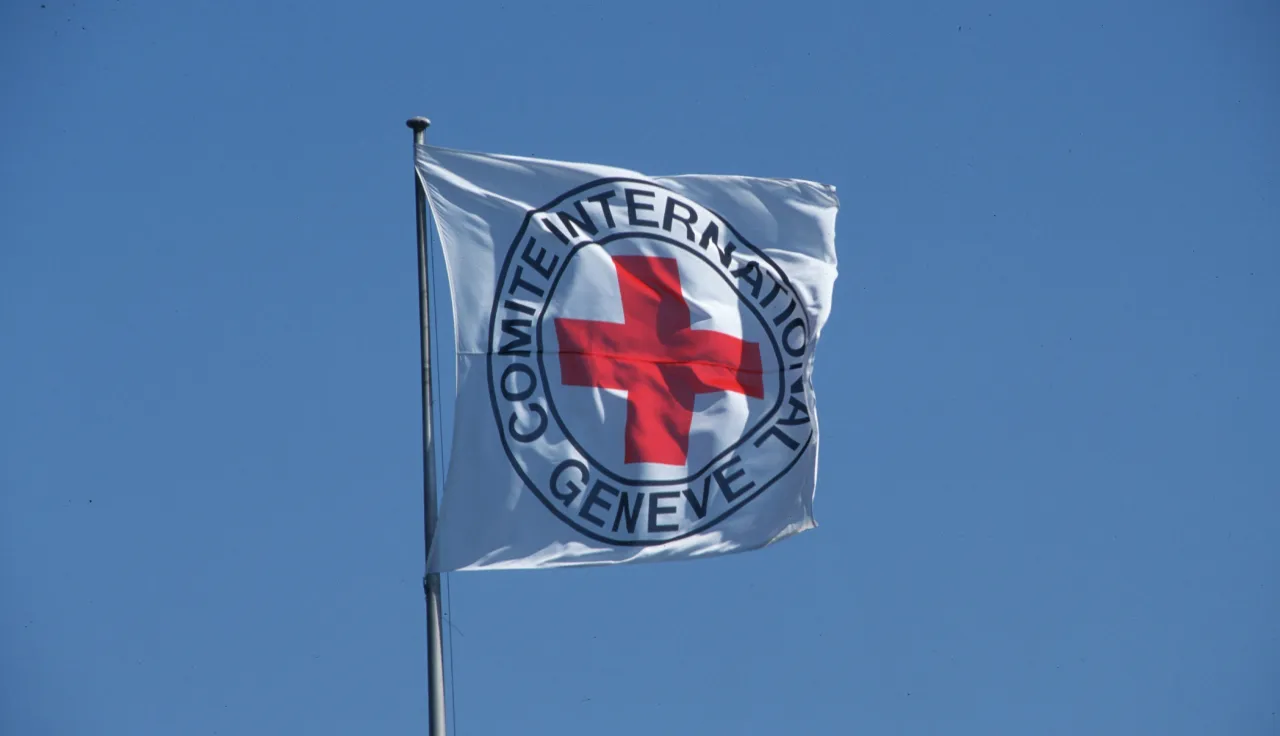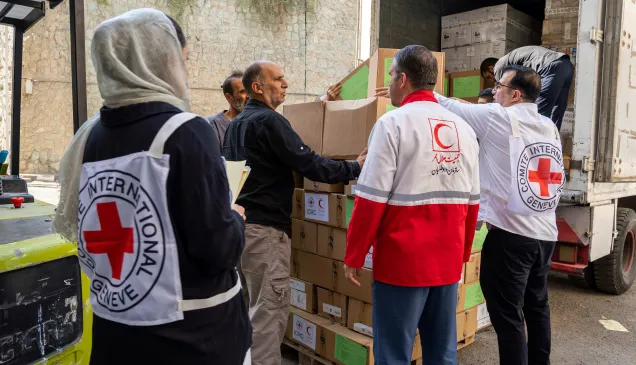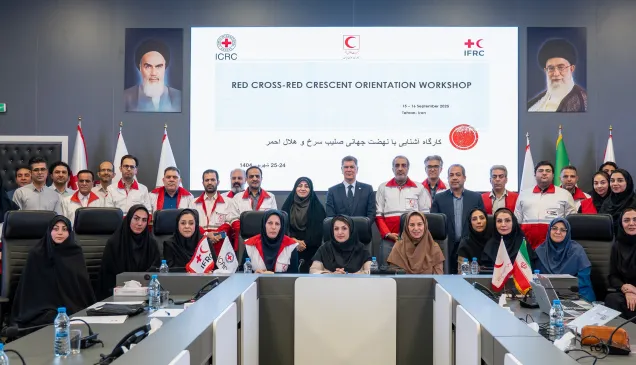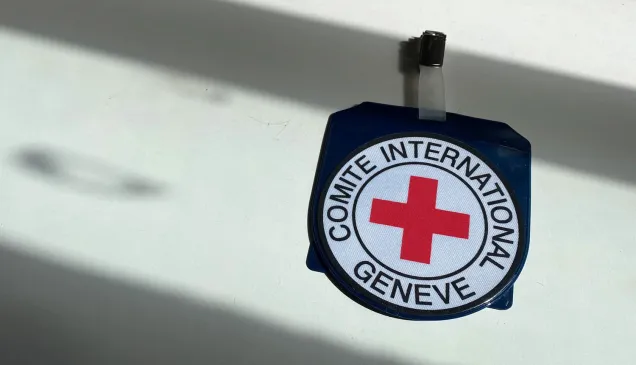Frequently asked questions: The ICRC's work in Iran

The International Committee of the Red Cross (ICRC) has been in Iran since 1977. We work in partnership with the Iranian Red Crescent Society (IRCS) and other Iranian organizations in the fields of promoting international humanitarian law, helping people reestablish contact with their relatives, physical rehabilitation and health care services.
For more information, we invite you to visit our page about Iran.
-
Since the escalation of hostilities between Iran and Israel, we have been engaging with relevant authorities and our partner, Iranian Red Crescent Society, to scale up a humanitarian response to address the needs of people affected by the conflict.
The ICRC started its activities in Iran in 1977 and maintained its presence in the country during the 1980-1988 Iran-Iraq War. We expanded our activities in the country since 2001.
Today, in Iran, we promote international humanitarian law and humanitarian principles, we continue to help address the humanitarian consequences of the 1980–88 Iraq-Iran war in relation to the issue of missing persons. We work in partnership with the Iranian Red Crescent Society and other Iranian organizations in the fields of tracing missing persons, physical rehabilitation, and health care services.
We also support access to health care and physical rehabilitation for Afghan migrants and vulnerable local communities in Iran in cooperation with the Iranian Red Crescent Society and local non-government organizations.
-
The ICRC is not in a position to support the evacuation of individuals or groups out of Iran. We do not have the capacity to support movements of populations within Iran or to the borders nor across the borders. We are also unable to indicate areas that could be deemed safe.
We acknowledge the fear and uncertainty you may be experiencing and regret that we cannot offer a different answer.
-
The Iranian Red Crescent Society is the main provider in the country to help families restore contact with their loved ones. The Restoring Family Links service is provided in all provinces of Iran. The ICRC team in Tehran works jointly with the Iranian Red Crescent Society and provides its technical support in addressing these cases.
If you are inside Iran, you can contact the Iranian Red Crescent Society through the following means:
By phone: 2188201082 (International Department)
By email: int_tracingrfl@rcs.ir
OR by visiting the nearest Iranian Red Crescent Society branch to where you live.
The address of their office in Teheran is:
Iranian Red Crescent Society
Under Secretary General (USG)
International Affairs & IHL
No. 2654 Valiasr Ave.
Building of Peace, Tehran, IranIf you have lost contact due to lack of connectivity, we recommend that you first wait a few days and approach the Iranian Red Crescent Society, once the telecommunications are restored, if you still cannot reach your loved one.
If you are outside Iran, please contact the nearest Red Cross or Red Crescent office in the country where you currently live. You can find more contact information in this directory.
It may take time to locate your relative, but as soon as there is news, the Iranian Red Crescent Society will contact you. We acknowledge the distress of having a missing relative, and we hope this painful and distressing period is over soon for you and your family..
-
Our partner, the Iranian Red Crescent Society, has been responding to the immediate humanitarian needs of people affected by the conflict.
We continue to coordinate with them the best way we can to support their lifesaving efforts. Currently, the International Committee of the Red Cross does not offer direct services or assistance programs for individuals.
-
We have a long-established partnership with the Iranian Red Crescent Society that dates back to when the ICRC first began working in Iran.
Despite safety and security challenges, Iranian Red Crescent Society staff and volunteers continue to provide lifesaving humanitarian services and do all they can to help civilians in an extremely volatile security environment, despite huge personal risks.
For many years, the ICRC has been providing technical and material support to the Iranian Red Crescent Society as it further strengthens its humanitarian programming.
The ICRC also works with two local non-government organizations to provide a range of health and physical rehabilitation services to vulnerable Afghan migrant and local communities in Khorasan Razavi and Sistan and Baluchestan provinces.
-
The ICRC has currently no humanitarian activity in prisons or other detention facilities in Iran. We also don’t have the possibility to confirm if your relative is detained nor help pass family news.
-
Yes. We actively speak out about the humanitarian consequences of armed conflicts. Our commitment to neutrality and impartiality is not always understood – especially in emotionally charged situations – but these principles are the core of our work and aren’t about staying silent, they’re meant to enable us to reach people in need where we have operations. They are enablers for us to operate in the most challenging contexts and ensure that our humanitarian services can reach those who need it most.
Our humanitarian principles are critical to our ability to operate in any context. We continue our efforts to inform people, including parties to the conflict, about what the ICRC can and cannot do based on our mandate and principles.
-
The ICRC is not a political organization and has no power to stop wars. Our role is to help people affected by conflict and remind all sides to respect the rules of war and protect civilians.
-
No. We operate without religious affiliation. We are a neutral, impartial and independent humanitarian organization and we work with impartiality as to nationality, race, gender, religious beliefs, class and political opinions.
Under international humanitarian law, all those caught up in war, no matter their affiliation, should be protected.
This doesn’t preclude us from speaking to religious groups, but this engagement is purely practical: we always speak to all parties involved, so we can get safe access to people who need support.
We strive to treat you with respect and dignity
It is forbidden for ICRC employees and our partners to ask for money or any type of favours in exchange for aid. We encourage all to report in good faith suspicion of fraud, corruption, sexual exploitation and abuse, sexual harassment and other suspected misconduct.
Everyone who works with the ICRC (our staff, partners, and suppliers) must always treat you with respect and dignity.
You have the right to report cases of inappropriate behaviour or illegal actions on the part of the ICRC. To do so, you can email us at code_of_conduct@icrc.org. You can also report it directly in the Integrity Line (available in English, French and Spanish).
The information you provide will remain confidential.
Take care before you share
If you come across content online that you believe to be false or misleading, you can report it directly to the social media platform.
You can also help slow the spread of misinformation by checking information before sharing it with others.



